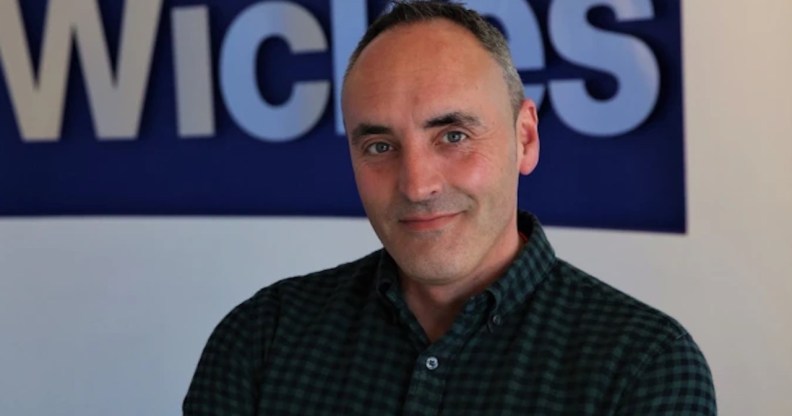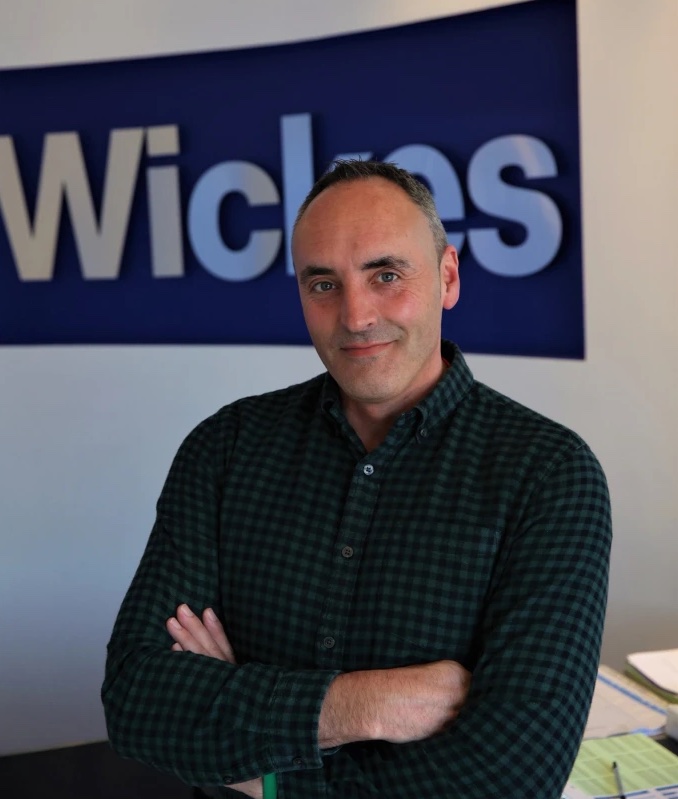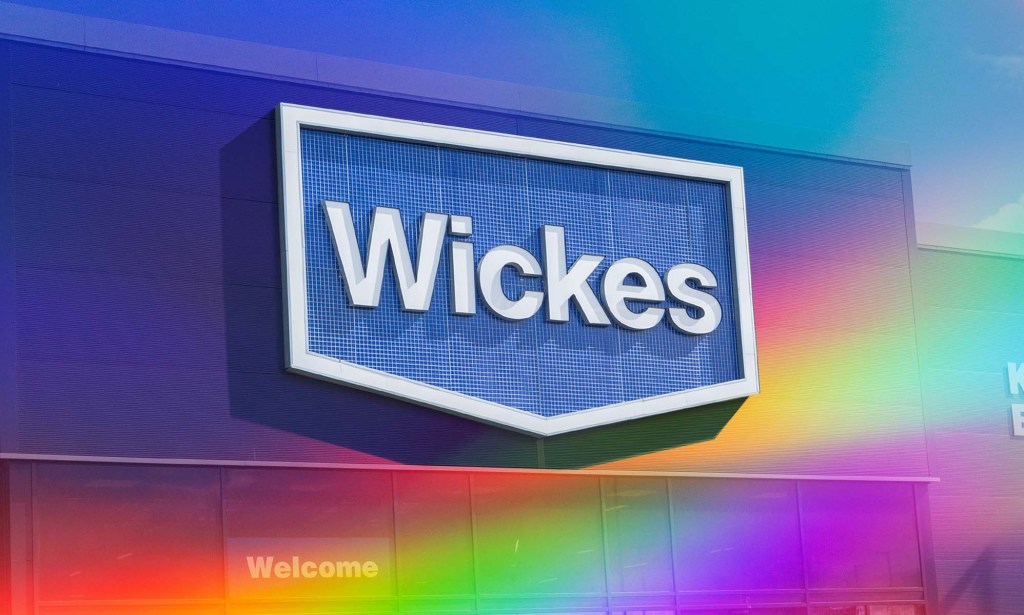Why diversity and inclusion work should never just be a top-down affair: ‘Our job is to listen’

Wickes is leading the way when it comes to diversity and inclusion work from both leadership and employee networks. (Ben Jackson/Wickes)
Wickes is leading the way when it comes to diversity and inclusion work from both leadership and employee networks. (Ben Jackson/Wickes)
PinkNews speaks to Fraser Longden, chief operations officer at Wickes, and Ben Jackson, head of inclusion and diversity at Wickes, about how employee networks and senior leadership can both play a key part in shaping progressive policy.
Diversity and inclusion (D&I) is an important facet of today’s workplace, with companies increasingly recognising the importance of building diverse teams that reflect the wider community.
C-suite executives and those in senior management positions have a key role to play in driving diversity and inclusion initiatives, as they are responsible for setting the tone and culture of the organisation. By taking an active role in promoting an inclusive workplace, senior leaders help to create an environment that values and respects people from all backgrounds, which leads to better business outcomes.
Studies have shown that companies with diverse teams are more innovative, more likely to attract and retain top talent and more profitable. However, achieving true D&I involves more than just hiring people from different backgrounds. It requires a commitment to creating an inclusive culture that values the unique perspectives and contributions of all team members. This is where senior management and executives come in.
By championing diversity and inclusion initiatives like employee resource groups (ERGS) and leading by example, they can help to foster a culture of respect, understanding, and inclusivity that benefits everyone in the business.
One company committed to inclusion, especially for the LGBTQ+ community, is the home improvement retailer Wickes. With 230 stores in the UK and over 8,000 employees, the company’s commitment to D&I hasn’t gone unnoticed, with the retailer recently finding itself in the top 20 of Stonewall’s Top 100 Employers list for 2023.

For Fraser Longden, COO at the firm, building an inclusive workplace just makes sense: “Across the work we do around inclusion, diversity and equity, doing the right thing is not something to be ashamed of.”
Longden says that inclusivity is a key part of Wickes’ strategy for staying current. “Creating a culture where everybody can feel welcomed – can be their authentic self, can be supported – is about modernising our business,” he says.
According to Ben Jackson, Wickes’ head of inclusion and diversity and current chair of the company’s Pride network, being an inclusive employer is a great opportunity to target future employees, especially the younger LGBTQ+ generation.
“You’ve got to recognise people’s different lived experiences”
Fraser Longden, COO at Wickes
“When you look at the 2022 Stonewall report on Gen Z, if only 71 per cent of them refer to themselves as straight, then actually, that’s a huge target audience and a great bunch of future colleagues in our business that we have to make feel included,” Jackson states.
“So we need to be ahead of the curve in what we do in our activity and our inclusive practices to build them in.”

To achieve true inclusivity within a company, it’s important that all employees are represented and have the opportunity to share their experiences. One effective way to achieve this is through ERGs. These employee-led networks help shape and form policies and initiatives. At Wickes, there are a half-dozen ERGs that assist in policy decisions at the company.
“The networks have been instrumental in reviewing challenging scoping potential new policy and practice for us,” says Jackson. “So a lot of the kind of pre-work and the activity has started with the networks in driving change.”
Longden agrees, and he also believes that the ERGs are a way for Wickes to ensure that all communities are included in the policies that shape the way they work. “You’ve got to recognise people’s different lived experiences and make sure that our reaction to those is accurate,” he says.

Longden thinks that giving people this opportunity is much more impactful than relying on leadership that doesn’t live within those experiences. He believes that it makes sense for LGBTQ+ and other employees from marginalised background to have input in policies rather than just people at the top.
“What’s going to be much better is tapping into the lived experience of the people who’ve been through that with us and asking them what went well and what didn’t go well.”
The involvement of ERGs is just the first step in inclusion at work, but there also needs to be support from corporate leadership. Within that ideal realm of corporate support and responsibility, Wickes should serve as a beacon of inspiration for other businesses when it comes to promoting inclusion at work.
“What we have got is a grounded understanding of where we need to go with those policies.”
Ben Jackson, Head of Inclusion and Diversity at Wickes
According to Londgen, Wickes runs on a network-fed, leader-led approach to ensure all employees are heard and have a safe place to work. He acknowledges what his role is. “Our job is to listen, to understand, accept what we’re hearing is true, and then do our bit to sort of move it forward,” he states confidently.
Both Londgen and Jackson concede that the path to inclusion at Wickes is a marathon – not a sprint – and there is always more work that can be done.
“Now, have we done enough with those policies? Are we progressive enough?” Jackson asks, “Probably not, and we probably got some work to do. But what we have got is a grounded understanding of where we need to go with those policies.”

